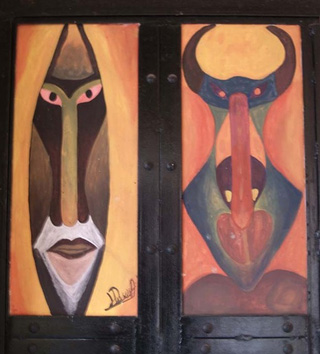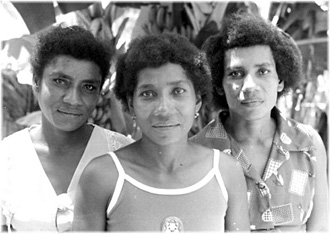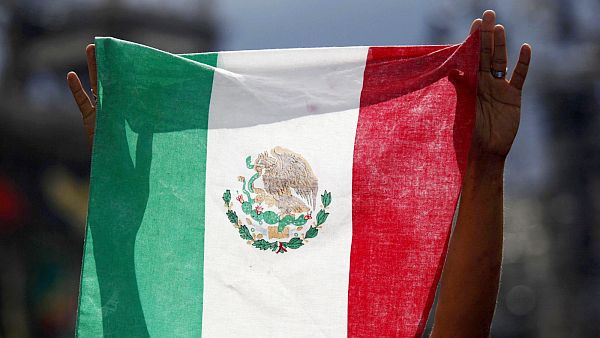Mexico City - For the first time ever, people of African descent living in Mexico were able to identify themselves as black in the national census.
 |
| Detail of a painted door panel on the Biblioteca Tercera Raíz en El Ciruelo, Guerrero, Mexico. These carefully painted panels depict scenes and symbols related to the African presence in Mexico. (Trina Michelle Robinson) |
Including an "Afro" category in the census is part of a push to recognize Latin America's black communities. Like the US, Latin America and the Caribbean have a history of slavery that resulted in a large number of residents of African descent - about 150 million, accounting for about 30% of the region's population, according to the United Nations.
Similar to their American counterparts, Latin America's black population also has been the target of racism, something that some countries are starting to address with anti-discrimination laws and affirmative-action policies. Governments have also committed to making more improvements to protect black Latin Americans as part of the UN's international decade for people of African descent, which started earlier this year.
But there's still a long way to go for black Latin Americans to achieve equal status. Earlier this month, Zeid Ra'ad Al Hussein, the UN's High Commissioner for Human Rights, speaking at a meeting in Brasilia, said he was 'struck by the enormity of the task before us.'
Compared to other countries in Latin America, Mexico had a smaller influx of African slaves. Still, many thousands were forcibly brought to New Spain, as the country was known when it was a Spanish colony, to work in silver mines and sugar plantations.
 |
"All those who were different were considered foreigners," she tells Quartz.
After fighting for recognition for more than two decades, Afro-Mexican activists are finally getting some traction. Being included in the census as distinct category is a big step. Mexico's Human Rights Commission has also vowed to fight discrimination, and organized a forum earlier this year to discuss policies to achieve that.
And last month, a gathering of Afro-Mexican communities — once a relatively small affair — was attended by several high-ranking government officials, including the head of the senate's commission on indigenous rights, who accepted a proposal to have black Mexicans formally recognized in the constitution.
Original article


